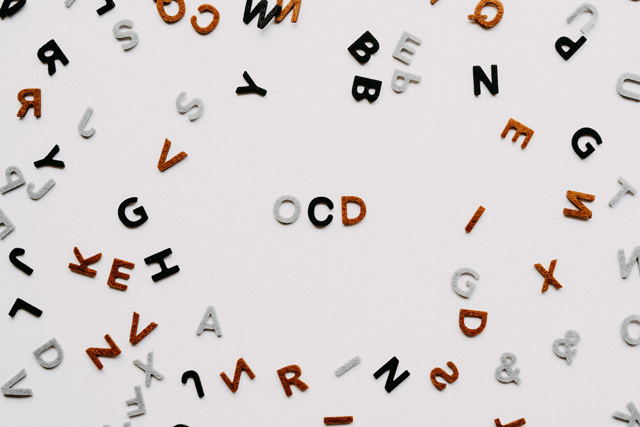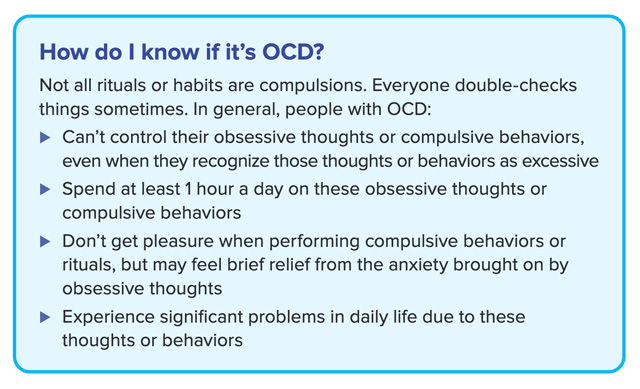COVID-19 Pandemic Worsened OCD Symptoms

(Annie Spratt)
By Nathaly Cisneros
Obsessive-Compulsive Disorder (OCD) is a mental health illness that affects about 2.3% of the population. Most people are diagnosed by age 19, according to the National Institute of Mental Health. The COVID-19 pandemic may have made people’s OCD symptoms worse, according to a study published in the Journal of Psychiatry Research. “OCD, hoarding disorder and skin picking disorder significantly worsened during the pandemic,” said the authors, who suggest that women and those who experience more COVID-related stressful events were most at risk.
OCD causes compulsive and obsessive behavior, like when people perform repetitive behaviors to relieve anxiety or intrusive thoughts. Obsessions are persistent unwanted intrusive thoughts and fears that can be disturbing and violent. Common compulsions include washing hands more than necessary, checking the stove repeatedly, checking doors, repetitive tapping, or repetitive praying. Obsessions include fear of touching something contaminated, fear of harming yourself by mistake, thoughts of doing illegal things like stealing, killing, stabbing, violent mental images of you harming people around you, and fear of losing control, among others.

(Source: National Institute of Mental Health)
Some OCD patients experienced an exacerbation of their symptoms during the pandemic and some developed new obsessions and compulsions, according to research published in Frontiers of Psychiatry. “Moreover, they were more frequently found to experience suicidal ideation, increased Internet checking, sleep disturbances, avoidance behaviors, and work difficulties,” say the authors of the article, “What Happened to Patients With Obsessive Compulsive Disorder During the COVID-19 Pandemic?”
The preventative measures taken during the pandemic to reduce the spread of COVID-19 may have caused “major discomfort” to those suffering from OCD, say the authors of “A Review of Effects of Pandemic on the Patients of Obsessive-Compulsive Disorder.” Authors explain that the pandemic emotions that everyone was experiencing — fear of losing a loved one, anxiety about the future — were felt much more profoundly by those suffering from OCD.
In an article on Johns Hopkins Medicine, the director of the OCD clinic Gerald Nestadt concurs. “There is evidence that safety behaviors like hand-washing may exacerbate obsessions and compulsions in OCD-affected individuals and possibly provoke these symptoms in others,” Nestadt. “We found that the degree of compliance with recommended behaviors to reduce the risk of exposure to and transmission of infection during the COVID-19 pandemic was significantly associated with contamination obsessions and phobias.”
College student Maria Matthews shared her challenges dealing with OCD. “My OCD before the pandemic was manageable, but after that, my OCD got a lot worse. I started washing my hands a lot more and I was more cautious of what I was touching. It was really bad, I would disinfect everything with an alcohol wipe, even my wired headphones when I got home.”
The severity of OCD symptoms vary, says a therapist at Upper Manhattan Mental Health Center. “It all depends on the person because some have symptoms that are very strong and it’s really hard to control while others show very minimum symptoms,” she said. “I feel like being closed in the house and not having anything to do and distract yourself builds up, it all depends on the fact if they have people around them.”
Treatment for OCD includes medicine like antidepressants, psychotherapy like exposure and response prevention therapy (ERP), and cognitive behavioral therapy (CBT) which is effective for OCD patients and has been validated in more than 30 studies, according to the National Institute of Health (NIH). However, the NIH also states that treatment for OCD may or may not cure patients of the disorder and that severe cases may need a longer course of medicine and therapy.
Saved under Featured Slide, News
